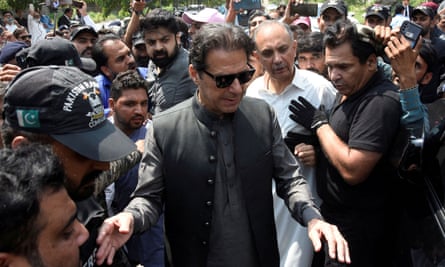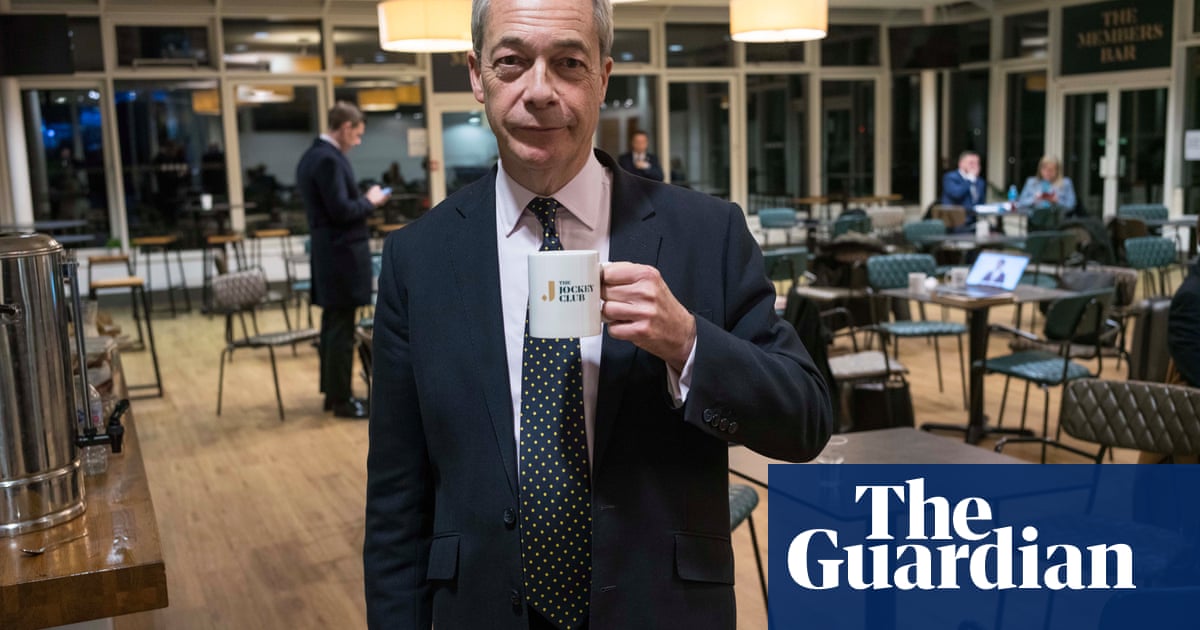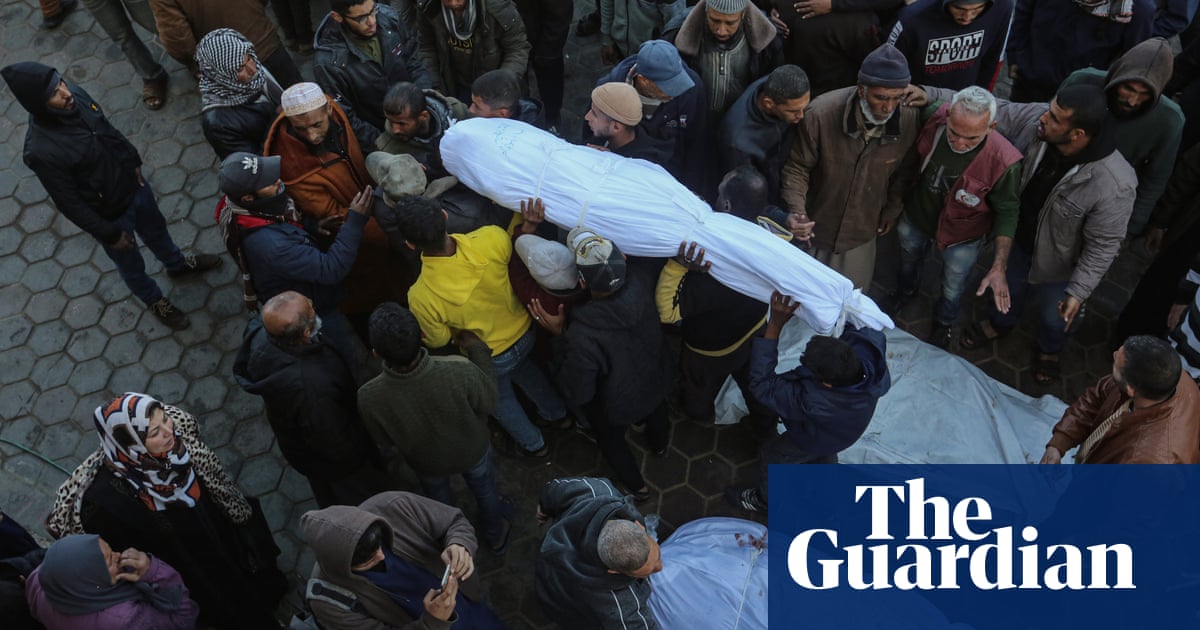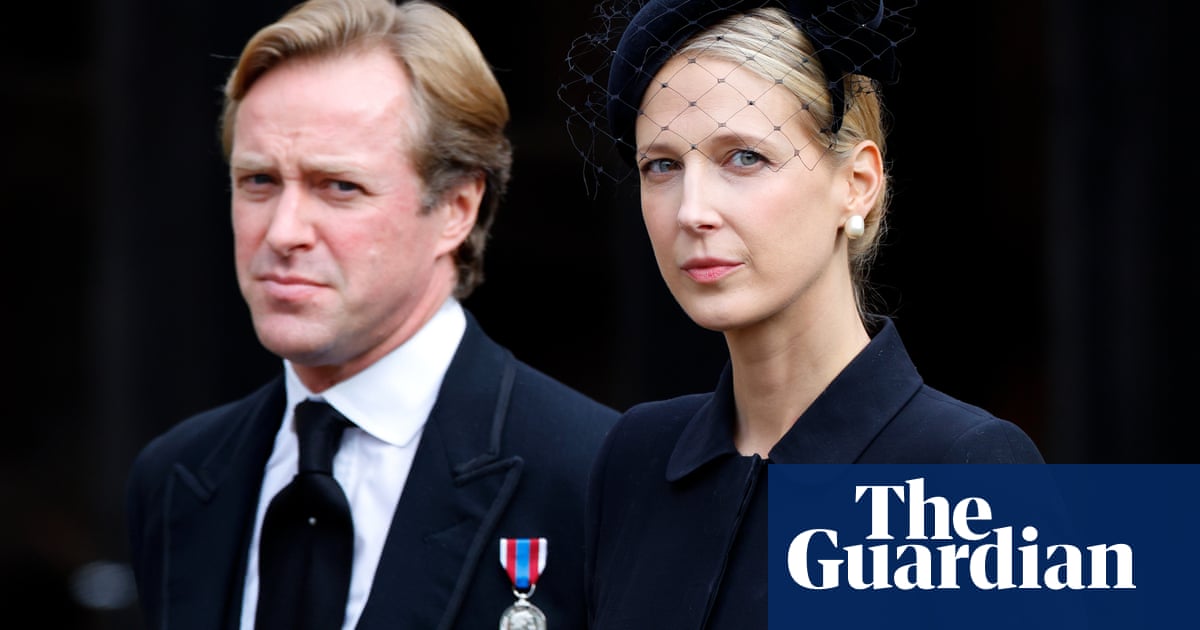Pakistan’s military has no intention of entering into negotiations or cutting a deal with incarcerated former prime minister Imran Khan, senior military sources told the Guardian, after Khan said he would be willing to engage with the army leadership from his jail cell.
Khan, who is being held in Pakistan’s Adiala jail, is banned from meeting journalists but the Guardian was able to submit questions through his legal team.
In his responses, Khan said he has had “no personal engagement with the military” since he was arrested and imprisoned in August last year.
However, he said he would not rule out doing a deal with Pakistan’s powerful military establishment, despite previously accusing them of bringing down his government and being behind his incarceration.
“With regards to doing a deal with the military, any engagement would be based on principles and in the interest of the people, not personal gain or compromises that undermine Pakistan’s democratic values,” Khan told the Guardian.
He added that he would “rather live the rest of my life in prison than compromise on my principles.”
It is widely acknowledged that Khan, a former superstar cricketer, was helped into power in 2018 with the backing of the military, long seen as the kingmakers of Pakistani politics and whose interference has often been an obstacle to the country’s fraught path to democracy.
It was after Khan’s relationship with the army’s leadership fell apart in 2022 that he was toppled from power. Khan then began to vocally criticise the military establishment, accusing them of a role in an assassination attempt on his life and for orchestrating his arrest.

Khan now faces upwards of a hundred cases he claims are trumped up by the military and political opponents who form the current coalition government. In June, the UN Working Group on arbitrary detention declared that Khan’s detention was unlawful.
Nonetheless, as his time in jail has dragged on and the cases against him have mounted, the former prime minister’s rhetoric towards the current military establishment has taken a more conciliatory tone. In July, Khan publicly offered to hold “conditional” talks with the military, if they agreed to hold “clean and transparent” elections. Khan and his Pakistan Tehreek-e-Insaf (PTI) have alleged that the elections held in February were undemocratic and marred by widespread allegations of rigging, and argue that PTI in fact won the election through the popular vote.
Behind the scenes, senior military leadership said that for the past few months Khan has been applying pressure for discussions with the military and had offered “unconditional” talks as he sought a deal to ensure his release.
However, senior military figures are said to be resolute in refusing to enter into any negotiations with Khan. “Khan has to face the court cases against him, and can’t expect any deals from the military. Khan wants everyone to follow the rule of law, but he does not want this rule of law for himself,” said one military source.
The current government, which is a coalition led by prime minister Shehbaz Sharif’s Pakistan Muslim League-Nawaz (PMLN) party, is said to have the backing of the military. Over the past month, they have recently pushed through amendments to extend the term of the army chief to five years, and to give the government greater control over the supreme court, which PTI has alleged is to serve the military’s agenda and prevent Khan from being released.
In response to the constitutional amendments and the allegedly rigged election, this week Khan issued a “final call” for a PTI protest due to be held in the capital Islamabad on 24 November. The party has been facing an ongoing crackdown since Khan was arrested, with most of the party’s leadership either in jail or exile.
The government has still yet to confirm if they intend to try Khan in a military rather than civilian court, for some of his alleged crimes which include everything from bribery to terrorism. He denies all charges.
“How can any civilian ever be tried in a military court, let alone a former prime minister?” said Khan. “It’s ludicrous. The only reason to try a civilian in military court is simply because no other court of justice would convict me. The very idea of it is alarming.”
Concerns have also been raised at the conditions that Khan is being kept in while in jail. Last month, his ex-wife Jemima Goldsmith alleged he was being kept in solitary confinement and was not being allowed to make calls to his sons. The government hit back, alleging he was being kept in a luxurious “presidential suite” with his own cook.
Khan denied any privileged treatment and said he had been “held in conditions designed to intimidate, isolate, and break my resolve. For 15 days, I was denied any human contact, no electricity in cell and kept in lockup for 24 hours a day without access to exercise or basic freedoms.”
He emphasised that the ban on journalists being able to visit him or freely cover his trials “speaks volumes about the transparency – or lack thereof – surrounding my predicament”.
Nonetheless, Khan said he remained confident that he would get justice eventually and he still believed he would “have the opportunity to serve as prime minister again if that is the will of the people”.

.png) 1 month ago
17
1 month ago
17













































